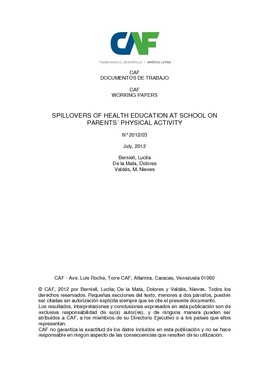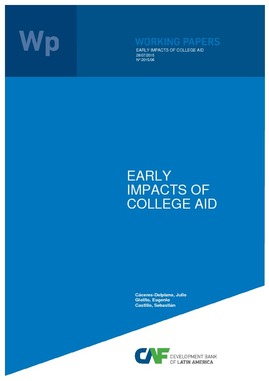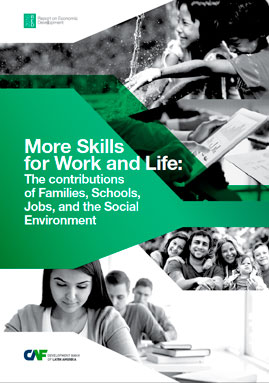Mostrar el registro sencillo del ítem
Spillovers of health education at school on parents´ physical activity
| dc.contributor.author | Berniell, Lucila | es |
| dc.contributor.author | de la Mata, Dolores | es |
| dc.contributor.author | Valdés, Nieves | es |
| dc.date.accessioned | 2014-10-15T20:04:14Z | |
| dc.date.available | 2014-10-15T20:04:14Z | |
| dc.date.issued | 2012 | es |
| dc.identifier.citation | Berniell, L., de la Mata, D., & Valdés, N. (2012). Spillovers of health education at school on parents´ physical activity. CAF Working paper, 2012/03, Caracas: CAF. Retrieved from https://scioteca.caf.com/handle/123456789/232 | en_GB |
| dc.identifier.uri | https://scioteca.caf.com/handle/123456789/232 | |
| dc.description.tableofcontents | To prevent modern health conditions like obesity, cancer, cardiovascular illness, and diabetes, which have reached epidemic-like proportions in recent decades, many health experts argue that students should receive Health Education (HED) at school. Although this type of education aims mainly to improve children's health profiles, it might affect other family members as well. This paper exploits state HED reforms as quasi-natural experiments to estimate the causal impact of HED received by children on their parents' physical activity. We use data from the Panel Study of Income Dynamics (PSID) for the period 1999-2005 merged with data on state HED reforms from the National Association of State Boards of Education (NASBE) Health Policy Database, and the 2000 and 2006 School Health Policies and Programs Study (SHPPS). To identify the spillover effects of HED requirements on parents' behavior we use a “differences-in-differences-in-differences" (DDD) methodology in which we allow for different types of treatments. We find a positive effect of HED reforms at the elementary school on the probability of parents doing light physical activity. Introducing major changes in HED increases the probability of fathers engaging in physical activity by 12.4 percentage points, while this probability for mothers does not seem to be affected. We find evidence of two channels that may drive these spillovers. We conclude that the gender specialization of parents in childcare activities, as well as information sharing between children and parents, may play a role in generating these indirect effects and in turn, in shaping healthy lifestyles within the household. | en_US |
| dc.language.iso | eng | es |
| dc.publisher | CAF | es |
| dc.relation.ispartofseries | CAF Working paper, 2012/03 | es |
| dc.rights | CC-BY-NC | es_ES |
| dc.rights.uri | http://creativecommons.org/licenses/by-nc/4.0/ | es_ES |
| dc.subject | Educación | es |
| dc.subject | Alimentación | es |
| dc.subject | Investigación socioeconómica | es |
| dc.subject | Salud | es |
| dc.title | Spillovers of health education at school on parents´ physical activity | es |
| dc.type | workingPaper | es |
| dc.publisher.city | Caracas | es |
Ficheros en el ítem
Este ítem aparece en la(s) siguiente(s) colección(ones)
-
6.1 Documentos de trabajo en investigación socioeconómica
En esta colección se encuentran los documentos de trabajo sobre temas económicos y sociales prioritarios para la región.





